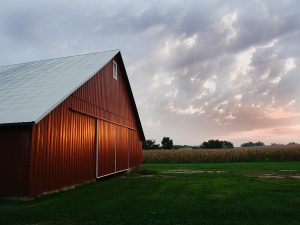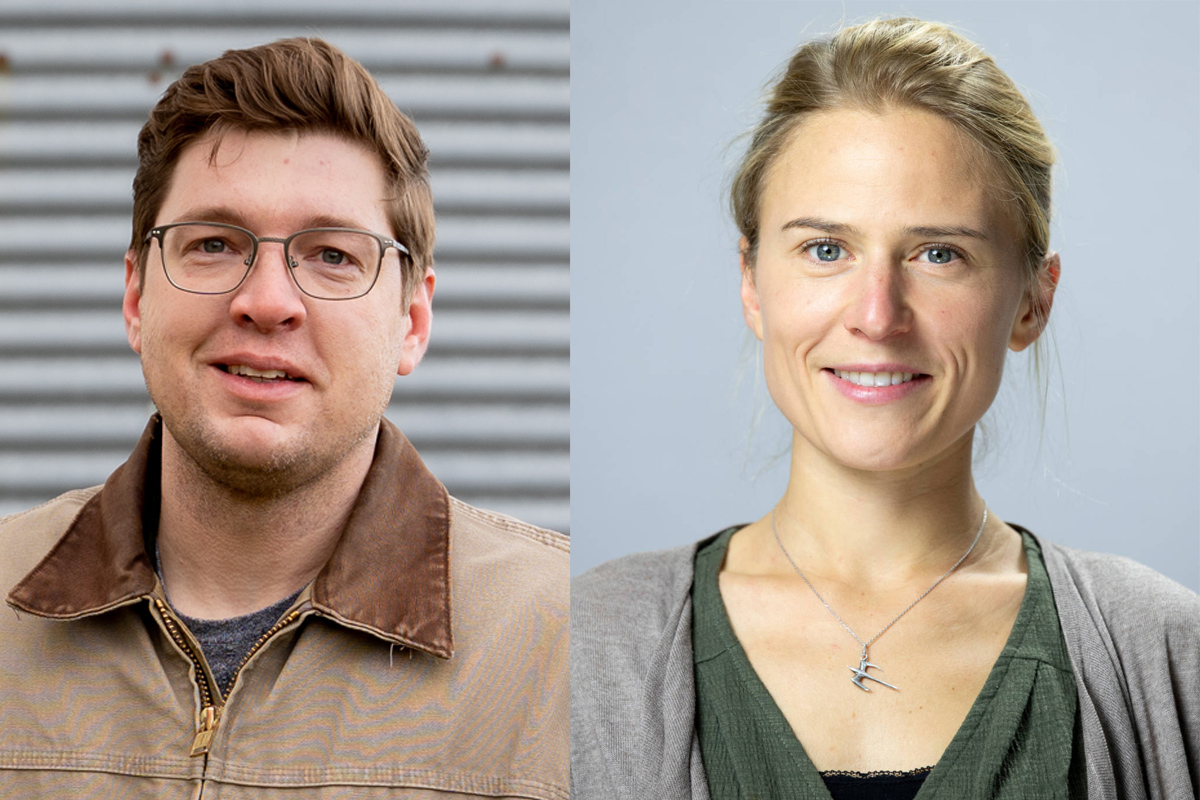Crop consultants with the Rodale Institute’s Midwest Center are working with farmers in the region to transition land to organic production. Léa Vereecke, who is based in Madison, Wisconsin, and Nic Podoll, based in Nevis, Minnesota, both joined the Rodale Midwest Center in January.
Vereecke, who was a research specialist at the University of Wisconsin prior to joining Rodale, and Podoll are working with about 125 farmers, offering a range of consulting services. They help farmers design organic system plans, plan crop rotations, prepare for organic certification and the paperwork involved in that, identify an organic certifier, and help them with soil sampling, among other services.
“Organic requires a different mindset”
What are the biggest challenges facing conventional farmers who are transitioning to organic? Vereecke says weed control, adding new crops to diversify a corn and soybean rotation, and planting cover crops for farmers who have no experience with them.
“The use of cover crops is not mandatory in the (organic) rules, but if you don’t plant them, you’re going to fail at organic farming because they’re such an important thing to have in the crop rotations,” she says.
Vereecke says one of the big challenges for transitioning farmers is adopting a new way of thinking. “Sometimes the challenge is just the mindset. Organic requires a really different mindset.”
Podoll says there is strong interest for their consulting services, particularly from farmers who are practicing no-till methods.
“They are already on the soil health journey and are thinking of taking the next step and eliminate chemicals completely.”
When consulting with farmers, Vereecke says it’s important to “meet people where they’re at. We don’t try to push things on anyone.”
Vereecke and Podoll work with farms of all sizes. “We work with people who are almost homesteaders, all the way to working with people who have 7,500 acres,” Vereecke says. “Some already have some organic acres and want to implement new practices. Others have been conventional for their whole lives and want to start the adventure.”
Vereecke works with farmers in Iowa, Illinois, Indiana, Ohio, Michigan, and Missouri, while Podoll covers western Iowa, Nebraska, Kansas, South and North Dakota, and Minnesota.
They are able to offer their services free to farmers because of financial support from grants and private funding. The Rodale Midwest Center has received funding from Iowa-based Frontier Natural Co-op.
Vereecke and Podoll are part of the larger Rodale Organic Consulting team, which was established in 2019 through funding from the Pennsylvania Department of Agriculture. Rodale Institute’s crop consultants are working with 270 farmers nationwide to transition around 25,000 acres to organic production.

Rodale Midwest Center in Marion, Iowa
Important to have research center in the Midwest
The Rodale Midwest Center opened in 2019, and is conducting research on organic farming systems for the Midwest, focusing on grain production. The Center and its research farm are located at Etzel Sugar Grove Farm (part of the Indian Creek Nature Center) in Marion, near Cedar Rapids, Iowa.
Vereecke says the Midwest Center will provide important research data on organic practices in the region.
“I think it’s really valuable to have a research center here in the Midwest,” Vereecke says. “Because the main Rodale research center is in Pennsylvania where the conditions are quite different from what we have here, in terms of climate and soils and also the economic environment. The more research environments we can have, the better.”
Podoll agrees. “Having a research farm in Iowa is really beneficial to growers here. Organic farmers have historically been underserved by agricultural extension. There is a need to help farmers with research and consulting, and organic farmers in the Midwest should see big benefits from that combination.”
Midwest Center farm manager Drew Erickson is growing corn, soybeans, oats, and buckwheat along with cover crops such as cereal rye and radish. He has also planted a vegetable garden. He will test no-till systems for organic soybeans, along with testing roller crimping equipment, which flattens the cover crops and makes a thick mulch for planting soybeans.
“Is it achievable to get to a no-till organic system? I think there are farmers who have already proved it is,” Erickson says. “We’ll just try to put more science behind it.”
Erickson is also experimenting with integrating chickens into the corn plantings because chickens eat certain corn pests and their manure is high in nitrogen to fertilize the corn.
The Center aims to provide the research to determine which organic practices work best in the Midwest and help the crop consultants in their mission.
“The goal is to transition as many farmers to organic as possible,” Vereecke says.
Beyond that Podoll says they are trying to provide good customer service to farmers.
“We try to help everybody we can, answer as many questions as we can, and help point them to the right resources. It’s a bit like being an agronomist and an extension agent at the same time.”





